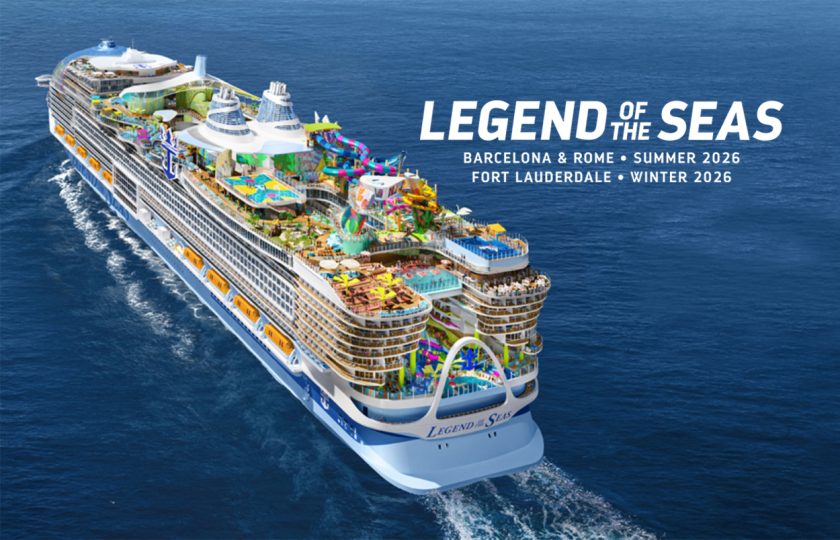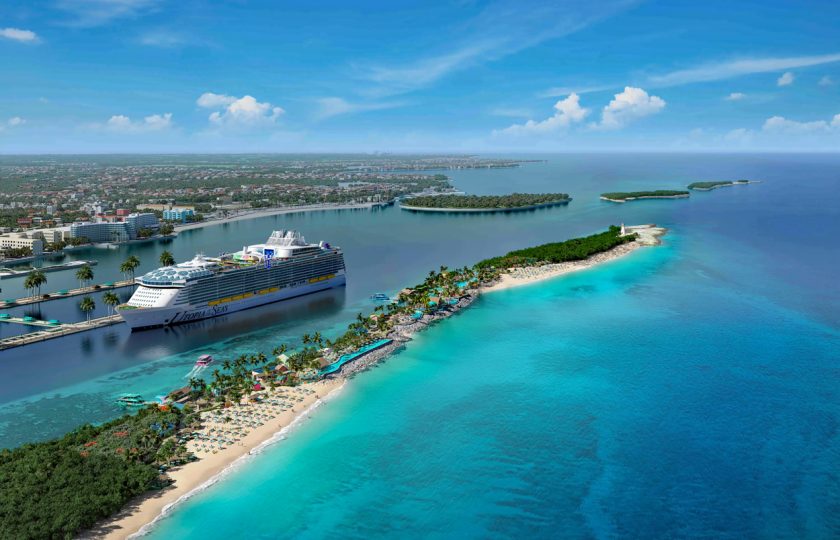Anyone that has taken a cruise before, knows the least favorite part is the mandatory muster drill. For years, guests have been required to attend these drills en masse, with literally thousands of guests all moving in the same direction at the same time.
Thankfully, with the introduction of the Oasis class ships from Royal Caribbean over a decade ago, guests stopped having to carry their life vests from their cabins to the drills. On newer ships, we’ve also seen a move to having guests attend the drills in indoor public spaces where the air conditioning and comfortable seating made the task a little more bearable.
Now, Royal Caribbean Group is replacing one of the least-loved but most important parts of a cruise vacation – the safety drill – with Muster 2.0™, an entirely new approach to delivering safety information to guests. The innovative program, the first of its kind, reimagines a process originally designed for large groups of people into a faster, more personal approach that encourages higher levels of safety.

With Muster 2.0, the key elements of the safety drill – including reviewing what to expect and where to go in case of an emergency, and instructions on how to properly use a life jacket – will be accessible to guests on an individual basis instead of a group approach that has been followed historically. New technology, eMuster™, will be used to help provide the information to guests via their mobile devices and interactive stateroom TVs. Travelers will be able to review the information at their own time prior to setting sail, eliminating the need for the traditional large group assemblies. The new approach also enables everyone on board to maintain better spacing as guests move about the ship, and it allows guests to enjoy more of their vacation with no interruption.

After reviewing safety information individually, guests will complete the drill by visiting their assigned assembly station, where a crew member will verify that all steps have been completed and answer questions. Each of the steps will need to be completed prior to the ship’s departure, as required by international maritime law.
Richard Fain, chairman and CEO, Royal Caribbean Group said:
“The health and safety of our guests and crew are our number one priority, and the development of this new muster process is an elegant solution to an outdated, unpopular process,”
“The fact that this will also save guests time and allow the ship to operate without pause means that we can increase health, safety and guest satisfaction simultaneously.”
More than a year in the making, Muster 2.0 is also an initiative that will be part of the comprehensive set of protocols and procedures Royal Caribbean Group is developing along with the Healthy Sail Panel that was recently assembled in collaboration with Norwegian Cruise Line Holdings Ltd.
Mike Leavitt, former Utah Gov. & co-chair of the Healthy Sail Panel said:
“This new process represents the kind of innovation that the Healthy Sail Panel is focusing on as part of its mission to enhance the health and safety of cruising,”
“It shows that we can accomplish a lot if we try to think outside the box on safety.”
The distributed muster for ocean-going vessels concept is patented in the United States and is patent-pending in major markets around the world, including the various cruise industry flag states. The company has also worked with international regulators, the U.S. Coast Guard and other maritime and government authorities to ensure it meets all safety requirements.
In addition to introducing the new process on the ships of its own cruise lines – Royal Caribbean International, Celebrity Cruises and Azamara – Royal Caribbean Group is offering to license the patented technology to interested cruise operators and will waive patent license fees during the time the world and industry battle the global pandemic. Patent licenses have already been granted to the company’s joint venture, TUI Cruises GmbH, as well as Norwegian Cruise Line Holdings Ltd., the parent company of Norwegian Cruise Line, Oceania Cruises and Regent Seven Seas Cruises.
Muster 2.0 was first tested on Royal Caribbean’s Symphony of the Seas in January 2020. Guests who took part in the mock process indicated a strong preference for the new approach and also reported better comprehension and retention of the safety information.




